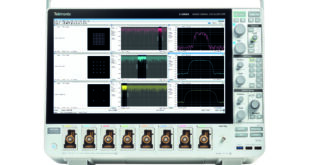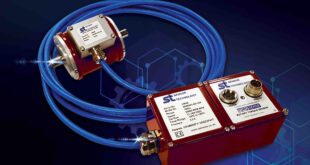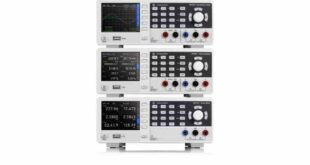With typical jitter performance as low as 95 femtoseconds (fs), the Si544/Si549 Ultra Series programmable XOs maximise jitter margin for clocking high-speed 28Gbps and 56Gbps transceivers used in 100/200/400G communications and data centre applications.
The devices are capable of generating any frequency from 200 kHz to 1.5GHz with no frequency gaps and four parts-per-trillion (ppt) tuning resolution, enabling a single device to be used across a broad spectrum of applications.
“Optical networks, hyperscale data centres and mobile fronthaul/backhaul networks are moving to higher speeds, increasing the need for ultra-low-jitter timing solutions,” said James Wilson, Senior Marketing Director for Silicon Labs’ timing products. “By choosing Silicon Labs’ I2C-configurable Si54x Ultra Series oscillators, system designers will have peace of mind knowing that they are using the industry’s most frequency flexible programmable XOs while maximising SNR headroom, de-risking development and helping to ensure first-pass design success.”
The Si544/Si549 XOs support up to four preset, pin-selectable start-up frequencies.
After power-up, the device operating frequency can easily be changed via an I2C interface. This configuration flexibility enables a single oscillator to replace multiple single, dual and quad-frequency XOs and multiplexer (mux) devices with a single oscillator.
The device can be powered from a single 1.8, 2.5 or 3.3V supply, eliminating the need for different XO part numbers for different supply voltages.
The Si54x XO’s I2C interface supports update rates as high as 1MHz (Fast-mode Plus), maximizing compatibility with a broad range of ASSPs, ASICs, SoCs and FPGAs.
The Si544/Si549 XOs are available in 3.2mm x 5mm and 5 x 7mm packages, providing superior frequency flexibility in the same footprint as a standard, fixed-frequency XO.
This compatibility enables hardware designers to prototype with an I2C-programmable XO and easily migrate to a single-frequency XO when the design transitions to production.
The Si54x XOs are purpose-built for 56Gbps transceiver designs. These designs rely on pulse-amplitude modulation (PAM4) signaling for serial data transmission. PAM4 uses four-level signaling to increase the bit rate per channel while keeping the bandwidth constant.
This tradeoff makes the design inherently more susceptible to noise. Using an ultra-low-jitter reference clock such as the Si544/Si549 devices maximises signal-to-noise ratio (SNR) headroom, helps prevent bit-errors and helps maintain signal integrity.
The Si544/Si549 oscillators use Silicon Labs’ advanced fourth-generation DSPLL technology to provide an ultra-low-jitter clock source at any output frequency.
The devices are programmable to any frequency from 200 kHz to 1.5GHz with 4 ppt resolution.
On-chip power supply regulation provides power supply noise rejection, enabling consistent, reliable low-jitter operation in noisy environments often found in high-speed networking and data centres.
The Si544/Si549 XOs also provide flexible, reliable drop-in replacements for low-jitter surface acoustic wave (SAW)-based oscillators while offering superior frequency tolerance and temperature stability.
The Si544/Si549 oscillators support all popular output formats including LVDS, LVPECL, HCSL, CML, CMOS and Dual CMOS.
 Engineer News Network The ultimate online news and information resource for today’s engineer
Engineer News Network The ultimate online news and information resource for today’s engineer





